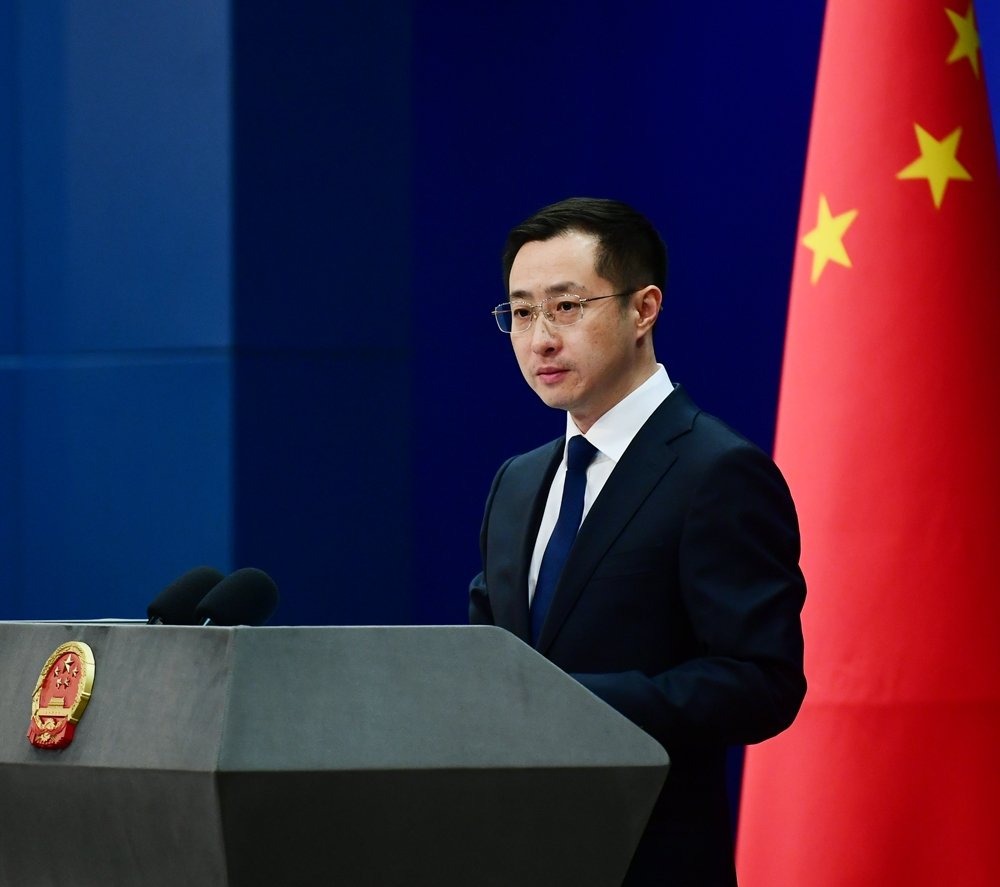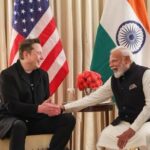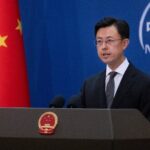Introduction: A Renewed Call for Cooperation
In a significant diplomatic statement, China has expressed its willingness to collaborate with the European Union (EU) to address pressing global challenges. Amid growing geopolitical tensions, trade disputes, and security concerns, Beijing’s latest remarks highlight its strategic interest in strengthening ties with Brussels as both sides navigate a complex global landscape.
The statement comes at a time when the EU and China are balancing economic interdependence with rising political tensions, particularly over human rights, trade policies, technological competition, and China’s stance on Russia’s invasion of Ukraine.
As China signals a desire for deeper cooperation, key questions arise:
- Is this a genuine effort for partnership or a strategic move to counter Western pressures?
- How will the EU respond, given its delicate balancing act between China and the U.S.?
- What are the main areas of potential collaboration and conflict?
1. China’s Diplomatic Overture: What Was Said?
In an official statement, Chinese officials emphasized their commitment to working with the EU on global issues such as:
✅ Climate change and sustainable development
✅ Economic recovery and trade cooperation
✅ Technology and innovation
✅ Peace and security, including global stability efforts
🔹 Chinese Foreign Ministry spokesperson Wang Wenbin stated:
“China is ready to work with the European Union to address global challenges and build a more stable, cooperative, and mutually beneficial relationship.”
This comes as China faces increased pressure from the U.S. and its allies over trade restrictions, Taiwan, and human rights issues, making the EU a crucial partner in shaping the next phase of global economic and political cooperation.
2. The EU’s Strategic Dilemma: Cooperation or Caution?
The EU finds itself at a crossroads in its relationship with China. While economic ties remain strong, political frictions and security concerns have deepened skepticism in Brussels about Beijing’s long-term intentions.
🔹 EU’s Dual Approach to China:
- On one hand, the EU seeks economic engagement, recognizing China as its largest trading partner in goods.
- On the other, Brussels has criticized China’s human rights policies, lack of market transparency, and its alignment with Russia amid the Ukraine war.
🔹 Key Areas of Concern for the EU:
⚠️ China’s Support for Russia: Some EU leaders worry about Beijing’s reluctance to condemn Russia’s invasion of Ukraine and its economic ties with Moscow.
⚠️ Trade Imbalances & Market Access: European companies have long complained about unfair trade practices, intellectual property theft, and restricted access to Chinese markets.
⚠️ Human Rights & Geopolitical Tensions: Concerns over China’s policies in Xinjiang, Hong Kong, and Taiwan continue to create diplomatic friction.
How the EU responds to China’s diplomatic outreach will depend on whether Brussels sees Beijing as a partner, a competitor, or a strategic rival.
3. Key Areas for Potential Cooperation
Despite geopolitical tensions, economic and environmental cooperation remain strong incentives for both China and the EU.
✅ 1. Climate Change & Green Energy
- The EU and China are major players in global climate action and have previously cooperated on renewable energy projects.
- With China’s ambitious carbon neutrality goal by 2060 and the EU’s Green Deal, both sides have strong incentives to collaborate on clean technology, emissions reduction, and sustainable development.
✅ 2. Trade & Economic Recovery
- Despite rising trade tensions, China remains the EU’s second-largest trading partner, and Europe is a key market for Chinese exports.
- Future discussions may focus on resolving trade imbalances, improving investment conditions, and reducing supply chain dependencies.
✅ 3. Digital & Technological Innovation
- The EU and China compete in sectors like AI, semiconductors, and telecommunications, but collaboration in scientific research and tech standards remains possible.
- However, European concerns over Chinese tech giants like Huawei’s role in 5G networks may hinder cooperation.
✅ 4. Global Security & Multilateralism
- Both China and the EU emphasize multilateralism, supporting the UN and international institutions in tackling issues like pandemics, peacekeeping, and economic development.
- However, China’s alignment with Russia and territorial ambitions in the Indo-Pacific raise doubts about Beijing’s commitment to a rules-based global order.
4. The Challenges Ahead: Can China-EU Relations Improve?
Despite calls for greater cooperation, China and the EU face significant obstacles in rebuilding trust and aligning strategic interests.
🔹 Major Roadblocks to Closer Ties:
- EU’s growing alignment with the U.S. on China-related policies
- China’s continued support for Russia amid the Ukraine conflict
- Brussels’ concerns over human rights violations and cybersecurity risks
- Rising economic protectionism and push for “de-risking” trade with China
🔹 EU’s Strategy: “De-risking” vs. “Decoupling”
- Unlike the U.S., which is pursuing economic “decoupling” from China, the EU prefers “de-risking,” meaning reducing over-reliance on Chinese supply chains without severing economic ties.
- European Commission President Ursula von der Leyen has warned of China’s increasing economic coercion while still advocating for dialogue and engagement.
5. Conclusion: A Diplomatic Balancing Act
China’s latest call for cooperation with the EU reflects its strategic push to strengthen economic and diplomatic ties amid increasing global competition.
However, the EU remains cautious, balancing its economic interests with security concerns and maintaining its close alliance with the U.S.
📌 What to Watch Next:
- Will EU leaders engage in deeper trade negotiations with China, or will tensions over Ukraine and human rights continue to stall progress?
- How will U.S. influence affect Europe’s approach toward China?
- Can both sides find common ground in climate action and technological development despite geopolitical rifts?
As global power dynamics shift, the EU’s relationship with China will be a key factor in shaping the future of international trade, security, and diplomacy.





